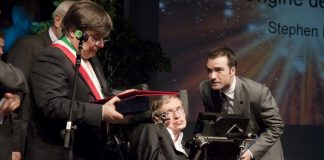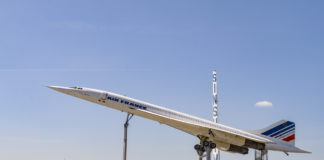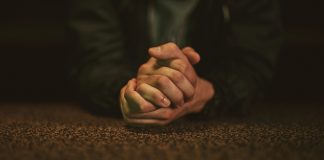It wasn’t me! It was Eve, the snake or the genes!
The stakes are high when it comes to homosexuality, promiscuity, alcoholism, violence, and the like. Previously seen as a result of environmental influence and moral choice, they have now become a genetical given.
Stephen Hawking’s verdict (Leaving God out)
“Because there is a law such as gravity, the Universe can and will create itself from nothing. Spontaneous creation is the reason there is something rather than nothing, why the Universe exists, why we exist.” This is Stephen Hawking’s statement that accompanied the book launch of “The Grand Design”.[1]
The essence of Christmas
A magical Christmas, a magical evening, magical touch, magical love – people talk about magic when they experience special emotions that they cannot or would rather not explain. "Bring a little magic into your life". This is a saying that resonates extremely well with the expectations of an entire generation.
Dusty mirrors in a cynical world
In a cynical world, just as certain otherwise healthy nutrients could cause cancer, correct formulations develop cynicism because they are easily suspected of hypocrisy. In order to believe again, cynics need different, experiential perspectives.
The truth about ourselves
History doesn't resemble Hollywood films. However self-evident this statement may be, it still comes as at least a partial surprise to many who imagine that history, while not quite like the movies, is still pretty close to the dramatic depictions.
The Judas Iscariot syndrome or the demagnetization of Christianity
According to studies, the higher a population’s level of education, the lower the percentage of those who believe in God. A Gallup poll, for instance, shows that while 70% of people who have finished primary school say they are religious, only 52% of college graduates could admit the same thing.
Death is never wonderful
Socrates is surrounded by his disciples on the day of his death, but he discusses immortality with them calmly. Jesus, on the other hand, only a few hours before His death, asks His disciples not to leave Him alone. Socrates drinks the cup of poison quickly and joyfully, without fear or doubt, while Jesus, troubled, asks the Father to take the cup from...
Hypersonic travel and the end times
Elon Musk visited my hometown of Adelaide, South Australia, twice in 2017. As you’d expect, he was greeted by huge public and media interest. People were excited that our humble little city would receive attention from the man behind Paypal, Tesla and SpaceX.
Free to make decisions for only 10% of the time
Of the approximately 26-28,000 days (73-79 years) that the average person lives, only a maximum of 10% of that time is actually spent as an adult making decisions about what to do. The rest of our time is spent in activities that are generally unavoidable.
The parents who cancelled Christmas
For parents, Christmas is always a stressful time: how to satisfy the child's desires without spoiling them and giving them the impression that they deserve to receive whatever they want, just because their decibel level exceeds the parents' level of calm and patience.
I used to fear God
I have read the Parable of the Talents many times, and have understood it in different ways at different times in my life. During my last read, I came across a commentary concerning the man who was given only one talent, which he chose to bury. Author Ellen White writes: The Lord desires His people to reach the highest round of the ladder...
Why I am a Christian
To believe is not to close one's eyes to questions or to abandon reason in favour of illusory spiritual comfort.
Is capitalism compatible with the Bible?
Many will admit that they have never thought about this question because they live the status quo without critically evaluating it.
The Ten: Incredible children in the Bible
With God's help, little guys can do big things too...
Free to be responsible
Several simple experiments have shown that certain neural processes that are activated when performing an action increase in intensity with fractions of a second or even whole seconds before conscious thinking is informed about the performance of that action.


























